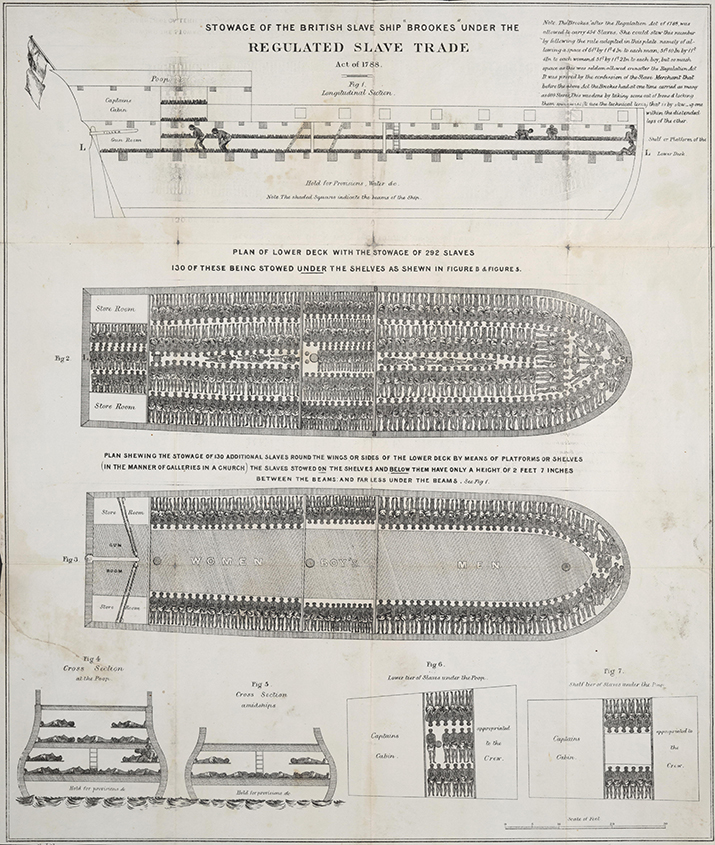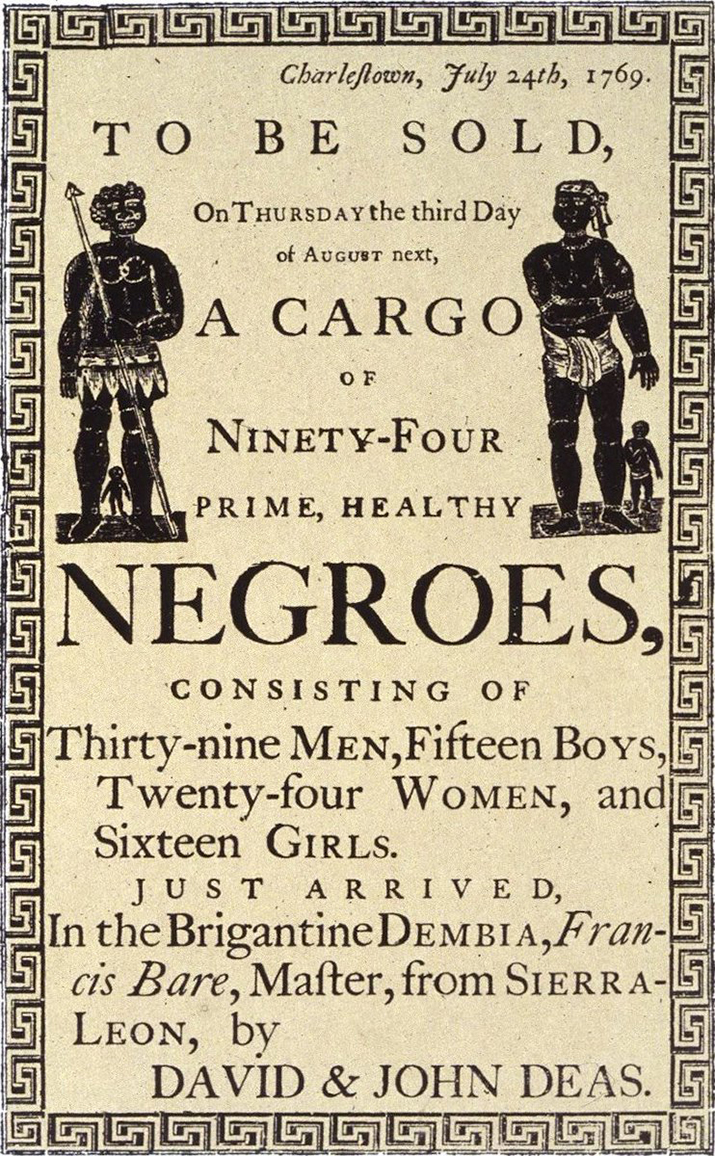HAPPENING AT THE UN
INTERNATIONAL DAY OF REMEMBRANCE OF THE VICTIMS OF SLAVERY AND THE TRANSATLANTIC SLAVE TRADE
«Come, ladies and gentlemen, come. Thursday 3 August, auction in the square. Ninety-four savages in good health just unloaded from Sierra Leone. Thirty-nine adult males, twenty-four females and thirty-one juveniles of reproductive age. Hurry up».
They weren't animals, they were 'negroes' but the difference was slight. A fortnight before the sale, a poster was hung up announcing a special market day in Charleston, South Carolina. A century and a half later, in 1920, the city would give its name to a dance invented by black dockers of the port, which more or less reproduced the movements they made to load and unload goods from ships. Those workers were probably the great-grandchildren of the ninety-four "items" sold to the highest bidder in 1769.
Several must have turned up at the slave auction, because it was convenient. The economy was flourishing, the workforce was almost free and there was very little remorse. It would take another hundred years, a Civil War, the XIII Amendment and a US president to be killed at the theater to stop the trade in men and women violently torn from their lands.
Today the sales have ended but racism has not. Also for this reason, the International Day of Remembrance of the Victims of Slavery and the Transatlantic Slave Trade, established by the United Nations in 2007 and celebrated every 25 March, seems more like an invitation not to forget rather than historical compensation. More or less the announcement that Maria Dolens launches every day with her hundred strokes of Peace.
The consequences of the most staggering forced migration in history are still just under our noses
Moreover, the consequences of the most staggering forced migration in history are still just under our noses. Laws are approved in a single day and this is good, but to change a person’s mentality takes much longer. In the United States, the racial question is still open and hardly a white person is encountered on death row who is not a prison guard. The abolition of slavery did not abolish discrimination. Black people had to wait until 1955 for Rosa Parks to refuse to get up for a white man who had "priority" before being able to sit on a tram where there was a free seat without worrying about who it was reserved for. And moving on to the present day, we just need to ask ourselves whether the murder of George Floyd would have become a legal case or if it would have been dismissed as an accident at work had it not been for the presence of smartphones.
In Africa, too, the effects of trafficking have not yet been overcome. Between 1600 and 1900, the continent's population plummeted by up to 30 percent in some areas. The cause of the demographic decline may be attributed to the deportation of slaves together with disease which was often imported. But while the slave traders raided the villages, snatching muscular boys and young women from their families to put in the holds, the main European countries grew rich at the expense of Africa, causing first a deceleration, then stagnation and, finally, the arrest of the economy of one of the potentially richest continents in the world. According to Rahul Mehrotra, a researcher at the Graduate Institute of International and Development Studies in Geneva, Africa loses nearly 90 billion dollars (75.8 billion euro) every year, money that, instead of being spent on education, health services or the economy generally ends up increasing the profits of multinationals or swelling bank accounts in tax havens.
A haemorrhage of capital which, according to the accusation contained in a report by the United Nations Conference on Trade and Development (Unctad), is equal to the sum of direct foreign investments and development aid that arrive on the continent every year. "Illicit financial flows are a multidimensional problem and it is very difficult to estimate their extent.
This is why the real figure could be very different, "Mehrotra points out, stressing that" there is an entire industry of tax optimization experts who help companies structure their business in order to pay as little tax as possible. In this case, many are wondering if we are facing evasion, therefore an illegal activity or simply the ability to exploit legislative shortcomings ".
According to the calculations of the Organization for Economic Cooperation and Development (OECD), tax avoidance mechanisms cost countries around the world between 100 and 240 billion dollars a year in lost revenue, equal to 4-10 percent of global business income taxes.
The Unctad also reports that 40 billion dollars, around 45 percent of the total illicit financial flows from Africa, may be attributed to the trade in raw materials, in particular gold. A Reuters investigation confirmed that every year "gold worth several billion dollars" is exported from the "Dark Continent”, thereby avoiding the taxes of the countries from which it is extracted.
In this way, according to experts, large capital arrives in the West that could conceal the illegal transfer of funds, even if, Mehrotra emphasizes, "the lack of reliable statistics concerning transactions makes it difficult to determine whether the discrepancies truly conceal an offense and what the nature of this offense is".
Slavery is a thing of the past, as is segregation, discrimination almost, prejudice quite possibly but exploitation is certainly not.
"Come on, ladies and gentlemen, come on."

A plan to "stow" the slaves during the voyage by ship from Africa to North America







